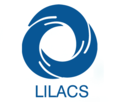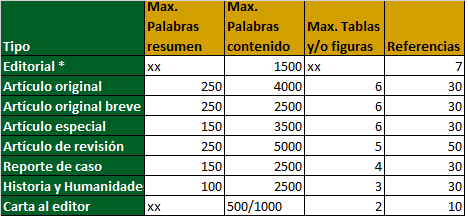Efecto de la aplicación de dietas hipocalóricas estructuradas en la reducción de factores de riesgo del síndrome metabólico
DOI:
https://doi.org/10.37711/rpcs.2021.3.3.335Palabras clave:
síndrome metabólico, dieta reductora, infecciones por coronavirusResumen
Objetivo. Medir la variación en los indicadores del síndrome metabólico y el peso corporal como factores de riesgo de la COVID-19, con la aplicación de dietas hipocalóricas estructuradas, en trabajadores de la Universidad de Huánuco. Métodos. Enfoque cuantitativo, alcance aplicativo, diseño cuasi experimental con un solo grupo de estudio y dos mediciones, para medir el cambio en los valores de los factores de riesgo del síndrome metabólico. Población: Con una población de unos 500 trabajadores de la Universidad Huánuco, entre 20 y 60 años, la muestra estuvo compuesta por 29 trabajadores con sobrepeso y síndrome metabólico. Resultados. La aplicación de la prueba estadística de Wilcoxon para comparar el rango medio de dos muestras relacionadas dio como resultado que existen cambios signifcativos en el número de factores de riesgo de síndrome metabólico, teniendo un p-valor de 0,000, siendo este menor al valor de signifcancia de 0,05; lo que nos permite rechazar la hipótesis nula en favor de la hipótesis alterna: la aplicación de dietas hipocalóricas estructuradas reduce el síndrome metabólico y peso corporal como factores de riesgo de la COVID-19, en trabajadores de la Universidad de Huánuco. Conclusiones. La aplicación de dietas hipocalóricas estructuradas a la hora del almuerzo logra reducir el síndrome metabólico, el peso corporal y, por ende, el índice de masa corporal, el perímetro abdominal, la glucosa, los triglicéridos y la hipertensión, disminuyendo de esta manera los factores de riesgo de complicación y muerte en caso de infección por COVID-19 en los trabajadores de la Universidad de Huánuco
Descargas
Referencias
Arias FA. Resurgiendo desde el caos, el efecto de una amenazaimpredecibleperoinminente[Internet] Bogotá: [Universidad Católica de Colombia; 2020 [Consultado 2020 Dic 17] Disponible en: https://repository.ucatolica.edu.co/handle/10983/24670
Onder G, Rezza G, Brusaferro S. Casefatality rate and characteristics of patients dying in relation to COVID-19 in Italy. JAMA [Internet]. 2020 May 12 [Consultado 2020 Dic 17]; 323(18): 1775-1776. doi: 10.1001/jama.2020.4683.
Wu Z, McGoogan JM. Characteristics of and important lessons from the coronavirus disease (COVID-19) outbreak in China. JAMA [Internet]. 2020 Abr 7 [Consultado 2020 Dic 17]; 323(13): 1239-1242. doi: 10.1001/jama.2020.2648
Chow N, Fleming K, Gierke R., Hall A, Hughes M, Pilishvili T. Preliminary estimates of the prevalence of selected underlying health conditions among patients with coronavirus disease 2019 - United States, February 12-March 28, 2020. Morb Mortal Wkly Rep. [Internet]. 2020 Abr 13 [Consultado 2020 Dic 17]; 69(13): 82– 386. doi: 10.15585/mmwr.mm6913e2
Anaya Mandal MD. Historia del Síndrome Metabólico [Internet] Manchester: News Medical; 2019 [Consultado 2021 May 15] Disponible en: https://www.news-medical.net/
Rodriguez A, Calá J, Cruz H, Montoya M. Síndrome metabólico. La dieta mediterránea mejora los factores. [Internet] Cienfuegos: Revista Finlay; 2011 [Consultado 2021 May 15] Disponible en: http://www.revfinlay.sld.cu/index.php/finlay/announcement/view/75
Primo D, Izaola O, De Luis D. Efectos de una dieta hipocalórica rica en proteína baja de hidratos de carbono vs. una estándar sobre los parámetros antropométricos y factores de riesgo cardiovascular, papel del polimorfismo rs3123554 del gen del receptor canabinoide tipo 2 (CB2R). Endocrinología, Diabetes y Nutrición [Internet] 2020 [Consultado Año Mes Día; ej. 2020 Dic 17]; 67(7): 446-453. doi: 10.1016/j.endinu.2019.09.010
Matías P, Lecumberri E y Calle A. Nutrición y Síndrome Metabólico. Rev. Esp. Salud Publica [Internet] 2007 [Consultado 2020 Dic 17]; 81(5), 489-505. https://scielo.isciii.es/scielo.php?script=sci_abstract&pid=S1135-57272007000500006
Instituto Nacional de Estadística e Informática. Perú enfermedades trasmisibles y no trasmisibles, 2017. [Internet] [Consultado 2021 May 15] Disponible en: https://www.inei.gob.pe/media/MenuRecursivo/publicaciones_digitales/Est/Lib1526/index.html
Obesidad y COVID19. G-SE [Internet] [Consultado 2021 May 15] Disponible en: https://gse.com/obesidad-y-covid19-bp-m5e92f0758fbe0
López D. Coronavirus y obesidad ¿Cómo afecta el sobre peso cuando tiene COVID-19? As [Internet] [Consultado 2021 May 15] Disponible en: https://peru.as.com/peru/2020/05/09/tikitakas/1589040959_673677.html
Dirección Regional de Salud Huánuco. Situación Epidemiológica del COVID-19 Región Huánuco [Internet] [Consultado 2021 May 15] Disponible en: http://www.dge.gob.pe/portal/docs/tools/teleconferencia/2021/SE052021/04.pdf
Agencia EFE. El 85 % de los casi 20.000 fallecidos por COVID-19 en Perú padecía obesidad. Agencia EFE. 2020 Ago 4 [Internet] [Consultado 2021 May 20] Disponible en: https://www.efe.com/efe/america/sociedad/el-85-de-los-casi-20-000-fallecidos-por-covid-19-en-peru-padecia-obesidad/20000013-4311666
Hernández R, Fernández C, Baptista MdelP. Metodología de la investigación. 6ª ed. México D.F.: McGRAW-HILL, Interamericana Editores; 2014.
Ventura JL. ¿Población o muestra?: Una diferencia necesaria. Revista cubana de salud pública [Internet]. 2017 [Consultado 2020 Dic 17]; 43(4):648-649. Disponible en: https://www.medigraphic.com/cgibin/new/resumen.cgi?IDARTICULO=76867#
Rojas IR. Elementos para el diseño de técnicas de investigación: una propuesta de definiciones y procedimientos en la investigación científica. Tiempo de educar [Internet]. 2011 2017 [Consultado 2020 Dic 17]; 12(24): 277-297. Disponible en: https://www.redalyc.org/articulo.oa?id=31121089006
Torres M, Paz K, Salazar FG. Métodos de recolección de datos para una investigación [Internet] [Consultado 2020 Dic 17] Disponible en: http://fgsalazar.net/LANDIVAR/ING-PRIMERO/boletin03/URL_03_BAS01.pdf
Martin C, Díaz J. Manual completo de nutrición y dietética. Madrid: Nova Rhoman Barcel Baires; 2014.
Carbajal, A. Manual de Nutrición y Dietética [Internet] [Consultado 2021 May 15] Disponible en: https://eprints.ucm.es/id/eprint/22755/1/Manual-nutricion-dietetica-CARBAJAL.pdf
López R, Hernández A, López J, Pastor B, Zapatero A, Ruiz M. Adhesión a una dieta mediterránea hipocalórica: una propuesta para reducir el sobrepeso y la obesidad en un centro residencial. Revista Española de Geriatría y Gerontología [Internet]. 2018 [Consultado Año Mes Día; ej. 2020 Dic 17]; 53(1):13-14. DOI: 10.1016/j.regg.2018.04.039
Steel RG, Torrie, JH. Bioestadística: principios y procedimientos. 2ª ed. Bogotá: McGraw-Hill; 1985.
Romero M; Aguilar A. Relación entre el estado nutricional y el síndrome metabólico en los adultos. Unidad de Obesidad del Hospital de Clínicas. Investig. Cienc. Salud [Internet]. 2015 [Consultado 2020 Dic 17]; 13(2): 67-77. DOI: 10.18004/Mem.iics/18129528/2015.013(02)67-077
Pajuelo J, Sánchez J. El síndrome metabólico en adultos, en el Perú. An. Fac. med. [Internet]. 2007 [Consultado 2020 Dic 17]; 68(1): 38-46. Disponible en: http://www.scielo.org.pe/scielo.php?script=sci_arttext&pid=S1025-55832007000100005
Gonzales M. Síndrome metabólico, dieta y marcadores de inflamación [Internet] Palma: Universitat de les Illes Balears; 2012 [Consultado 2020 Dic 17] Disponible en: http://hdl.handle.net/11201/2579
De la Sociedad Española, GC., de Nutrición Comunitaria, S. E. N. C., Bartrina, J. A, Val, VA, Aldalur, EM, de Victoria Muñoz, EM, & Majem, LS. Guías alimentarias para la población española (SENC, diciembre 2016); la nueva pirámide de la alimentación saludable. Nutrición Hospitalaria [Internet]. 2016 [Consultado 2020 Dic 17]; 33(8): 1-48. Disponible en: https://dx.doi.org/10.20960/nh.827
Álvarez-Álvarez I, Martínez M, Sánchez A, Corella D, Díaz- López A, Fitó M, Fitó, et al. Dieta mediterránea hipocalórica y factores de riesgo cardiovascular: análisis transversal de PREDIMED-Plus. Revista Española de Cardiología [Internet]. 2019 [Consultado 2020 Dic 17]; 72(11): 925-934. DOI: 10.1016/j.recesp.2018.08.007
Yunsheng M, & Col. La dieta alta en fibra vs. la restricción de calorías para bajar de peso. Universidad de Massachusetts: División de Medicina Preventiva del Departamento de Medicina; 2015.
Rojano D, Vargas G. Efectos de una dieta hipocalórica y de un programa de ejercicio físico de corta duración en el perfil lipídico y en la composición corporal de mujeres menopáusicas con sobrepeso. RAMD [Internet]. 2014 [Consultado 2020 Dic 17]; 7(3): 95-100. Disponible en: https://www.redalyc.org

Descargas
Publicado
Número
Sección
Licencia
Derechos de autor 2021 Amelia Madeleine Díaz Tarazona , Jorge Luís López-Sánchez , Christian Paolo Martel Carranza

Esta obra está bajo una licencia internacional Creative Commons Atribución 4.0.





















